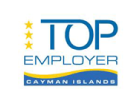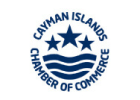10 Words That Will Ruin Your Resume
by Louise on September 7, 2012
I recently came across the following blog posted by Charles Purdy about what language to use and words to avoid when writing your resume. If your resume needs an overhaul here are some tips on how to avoid empty empty cliches, annoying jargon, and recycled buzzwords and getting it just right. Good luck!
1. “Salary Negotiable”
Yes, they know. If you’re wasting a precious line of your resume on this term, it looks as though you’re padding—that you’ve run out of things to talk about. If your salary is not negotiable, that’d be sort of unusual (still, don’t put that on your resume).
2. “References available by request”
See the preceding comment about unnecessary terms.
3. “Responsible for ______”
Reading this term, the recruiter can almost picture the C-average, uninspired employee mechanically fulfilling his or her job requirements—no more, no less. Having been responsible for something isn’t something you did—it’s something that happened to you. Turn phrases like “responsible for” into “managed,” “led,” or other decisive, strong verbs.
4. “Experience working in ______”
Again, experience is something that happens to you—not something you achieve. Describe your background in terms of achievements.
5. “Problem-solving skills”
You know who else has problem-solving skills? Monkeys. Dogs. Mice. I once saw a YouTube video of an octopus that figured out how to open a jar. On your resume, stick to skills that require a human.
6. “Detail-oriented”
So, you pay attention to details. Well, so does everyone else. Don’t you have something unique to tell the hiring manager? (Plus, putting this on your resume only makes that accidental typo in your cover letter or resume all the more comical.)
7. “Hard-working”
Have you ever heard the term “Show; don’t tell”? This is where that might apply. Anyone can call himself or herself a hard worker. It’s a lot more convincing if you describe situations in which your hard work benefited an employer (and use concrete details).
8. “Team player”
See the preceding comment about showing instead of telling. There are very few jobs that don’t involve working with someone else. If you have relevant success stories about collaboration, put them on your resume. Talk about the kinds of teams you worked on, and how you succeeded.
9. “Proactive”
This is a completely deflated buzzword. Also, again, show; don’t tell.
10. “Objective”
This term isn’t always verboten, but you should use it carefully. If your objective is to get the job that you’ve applied for, there’s no need to spell that out on your resume with its own heading. The “Objective” section of a resume is usually better replaced by a summary of your background and achievements, and a description of what you have to offer an employer. An exception might be if you haven’t applied for a specific job and don’t have a lot of experience that speaks to the position you’d like to achieve.
SHARE THIS ARTICLE
Recent Articles









